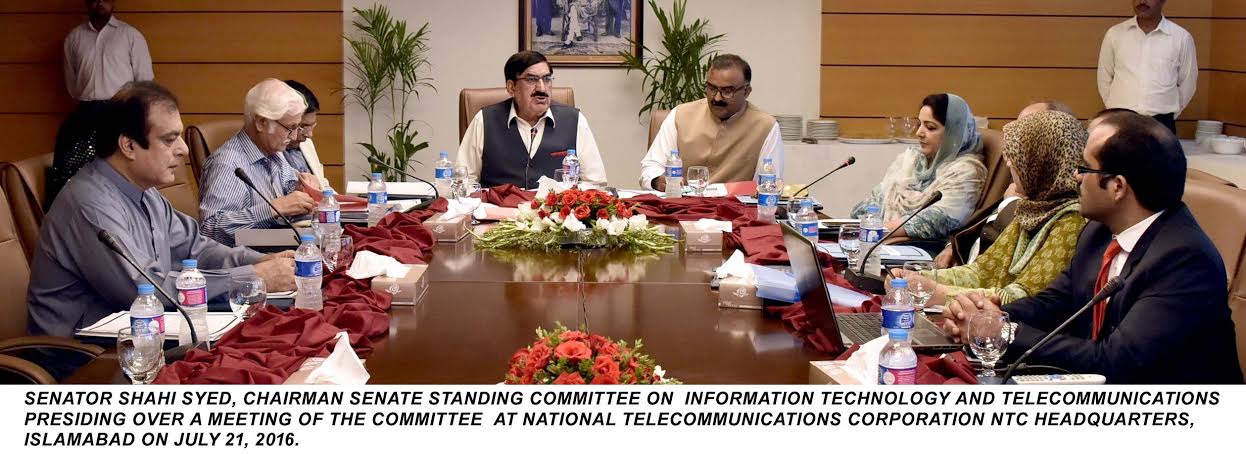ISLAMABAD ( MEDIA REPORT )
The Senate Standing Committee on Information Technology maintained that the cybercrime law must protect privacy, ensure the preservation of users’ data and must not hinder the free flow of information.
“These three aspects are critical. The cybercrime law is too harsh and can be misused by the executive, which is our biggest fear,” said PPP Senator Farhatullah Babar, during a Senate committee meeting held to discuss the draft of the Prevention of Electronic Crimes Bill (PECB) 2015.
Roughly 20 minutes into the meeting, representatives from NGOs and civil society, who had submitted their recommendations on the draft, were asked to leave by the committee chairman, Senator Shahi Syed, who did not allow any more debate on the bill.
“The committee will do its job now; it already has the points of view from civil society and other stakeholders representing the IT industry,” the senator observed.
But civil society representatives felt that the IT ministry had been successful in ensuring an end to outside additional input. “It was obvious that they do not want more debate on it,” said Bolo Bhi’s Farieha Aziz.
Nonetheless, the committee deliberated on several sections of the draft bill, proposed by the Ministry of Information Technology.
Members were concerned that investigating officers could exercise a range of actions, suggesting instead that he/she should only take due and reasonable action, since some offences are too minor in nature.
Senator Babar lamented that the Pakistan Federal Union of Journalists (PFUJ) had failed to give their recommendations, despite repeated reminders from the committee secretary.
“The law also restricts freedom of expression. It will likely hurt media the most if they do not speak their minds,” Senator Babar said.
However, civil society representatives had concerns with nearly all sections. They felt that section 9, which deals with ‘Glorification of an Offence’ and ‘Hate Speech’, could be used to book political workers and rights activists who were currently being charged under the Anti Terrorism Act (ATA).
It was pointed out that the phrase hate speech should be removed, as this section did not deal with it, while the committee felt that a separate law on was required to address this issue.
Similarly, under section 34, on unlawful content online, civil society members believed that the Pakistan Telecommunication Authority (PTA) should not be allowed to determine the nature of the offence.
“An official should not have the power to decide which content to block and which to access. This decision should rest with the court,” said one civil society representative.
Stakeholders continued to emphasise that the offences were too numerous and the punishments too harsh. The draft law allowed officers to make arrests without warrants, they said, giving examples of other countries which had struck down sections that curbed basic human rights in their countries.
State Minister for Information Technology Anusha Rehman argued that it was obvious that the civil society did not want any law at all.
However, Senator Shahi Syed said: “The cybercrime law is necessary. We cannot have it the way civil society wants… that there should be no law at all.”
Published in Dawn,

